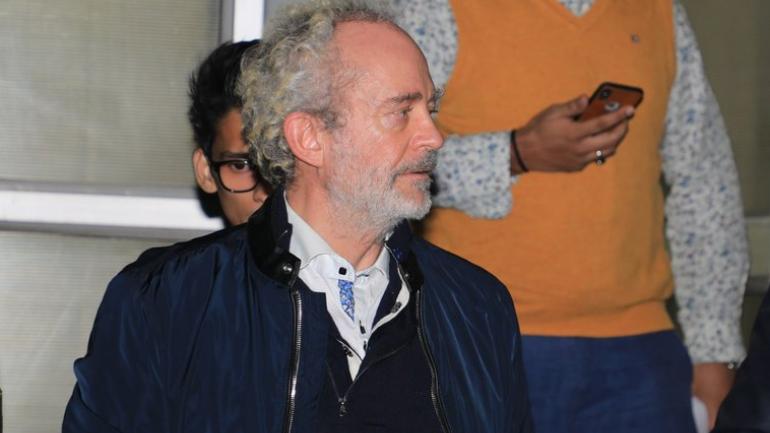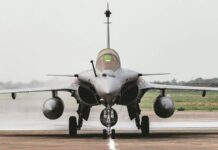NEW DELHI: Whichever government was in power, whether it was Manmohan Singh’s in 2004, Atal Bihari Vajpayee’s in late 2003, or even the Rajiv Gandhi government in 1987, Westland’s tryst with India has remained jinxed, says a new book.
The Untold Story of Christian Michel and AgustaWestland looks at how the alleged scandal in the purchase of helicopters became a raging storm in India.
Caught in the web of complex events orchestrated by powerful corporate kingpins with vested interests are the three main players – Guido Haschke, Giuseppe Orsi and Christian Michel. The book also provides insights into the role of coteries in India’s power politics.
Michel is an alleged middleman arrested in the AgustaWestland chopper scam.
The Central Bureau of Investigation (CBI) has alleged that the deal signed in February 2010 to supply VVIP choppers, worth 556.262 million euros, caused an estimated loss of 398.21 million euros (about Rs 2,666 crore).
On January 1, 2014, India scrapped the contract with Italy-based Finmeccanica’s British subsidiary AgustaWestland for supplying 12 AW-101 VVIP choppers to the IAF over alleged breach of contractual obligations and charges of paying kickbacks.
The CBI on September 1, 2017, had filed a charge sheet in the case in which Michel was named as one of the accused.
The Enforcement Directorate (ED) filed a supplementary charge sheet against Michel and others on April 4. He was arrested by the ED on December 22 after his extradition from Dubai.
According to author Raju Santhanam, AgustaWestland has been bad karma for India.
Whether they were being purchased in 2010, in a brand new state-of-the-art flying condition, or contracted in the British Aid Program in 1986, or purchased after being junked. AgustaWestland continues to stain the reputation of those who have been associated with their choppers in some way or the other.
Whichever government was in power, Westland’s tryst with India has remained jinxed, he says.
Now, it appears it has lost out in Asia’s biggest market and with the blacklist tag, it has tainted itself for the second time in 23 years. In 1986, it had signed a contract for the WG-30s that were later proved to be junk, un-flyable’ and consigned to the junkyard, he writes.
The book, published by Roli, talks about how former Prime Minister Rajiv Gandhi first opposed the deal before agreeing to it and how he was convinced by his British counterpart Margaret Thatcher to buy the helicopters.
Two years after the deal was signed in March 1986, the choppers were debarred from operating after two crashes in India. Later, a British company (AES) offered to buy them back from the Indian state-owned helicopter firm, Pawan Hans Helicopters in the hope that they would be certified for flying. Actually, the UK also withdrew its air worthiness certificates, it says.
The author mentions an interesting difference between the 2010 AgustaWestland deal and the 1986 Westland contract.
If one compares the file movements of the Westland deal in 1987 and the AgustaWestland deal signed in February 2010, there is an interesting takeaway. In the 2010 deal, the file movements suggest that there was a steady movement where everyone’s view of it was taken into account, he writes.
The Westland chopper deal of 2010 was initiated by the BJP-NDA government in 2003, and the file for buying VIP choppers with the new specifications was firmed only in 2006. It was signed in February 2010. It took seven long years. There were also new DPP norms that compelled companies to sign pre-contract integrity clauses, the book says.
In the 1987 contract, which was about the time that the Bofors gun deal was being finalised, neither rules nor norms were in place. In just a matter of months, the then Prime Minister Rajiv Gandhi, reversed his own stand not just in Parliament but also in private conversations with his British counterpart, Margaret Thatcher. What led to this turnaround is a question that neither the government agency nor the CBI ever asked, the book claims. PTI







